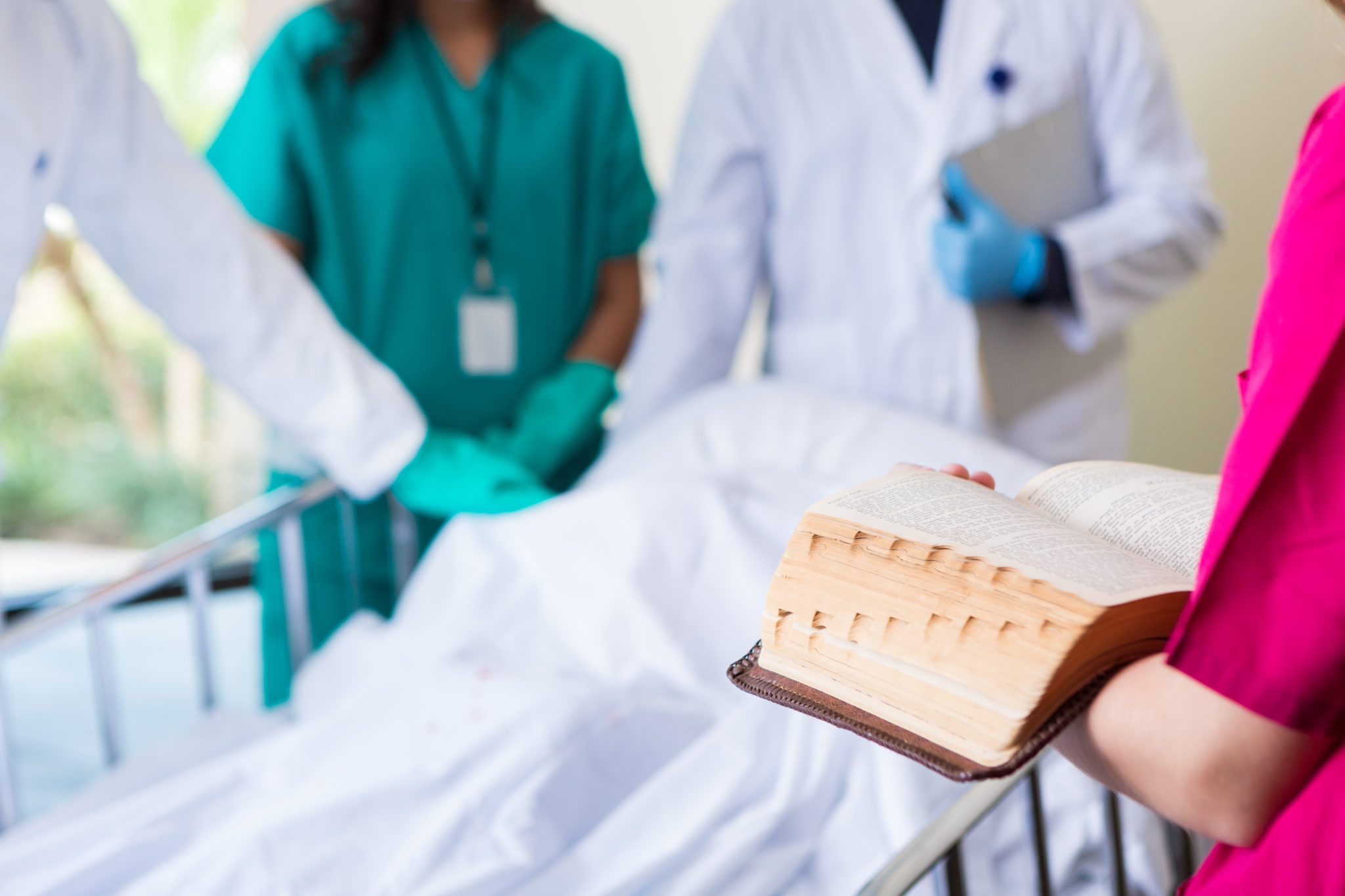T he Reformed Church in America has approximately 220 chaplains in ministry all over the world. Chaplains serve outside the church, providing spiritual care to people who are isolated, people nursing past hurts from the church, or people who are uncertain or unconvinced of God’s role in their lives. “Chaplains do missionary work,” says Darcy Lovgren Pavich, who works among homeless veterans in a residential facility.
During the COVID-19 pandemic, many chaplains were on the medical frontlines. Their ministry of presence and spiritual care was in great demand, though not without significant personal and professional challenges.
“It’s been a rollercoaster with ups and downs, not knowing what’s going to happen next,” says Max Han, a hospice chaplain. “Patients are scared. Even though they want spiritual care, we can only do so through telephones or telehealth or [rare] opportunities to do face-to-face.”
Here, six chaplains share their experiences and takeaways from a pandemic year—from walking with patients in dying days to unexpected places of joy and hope.
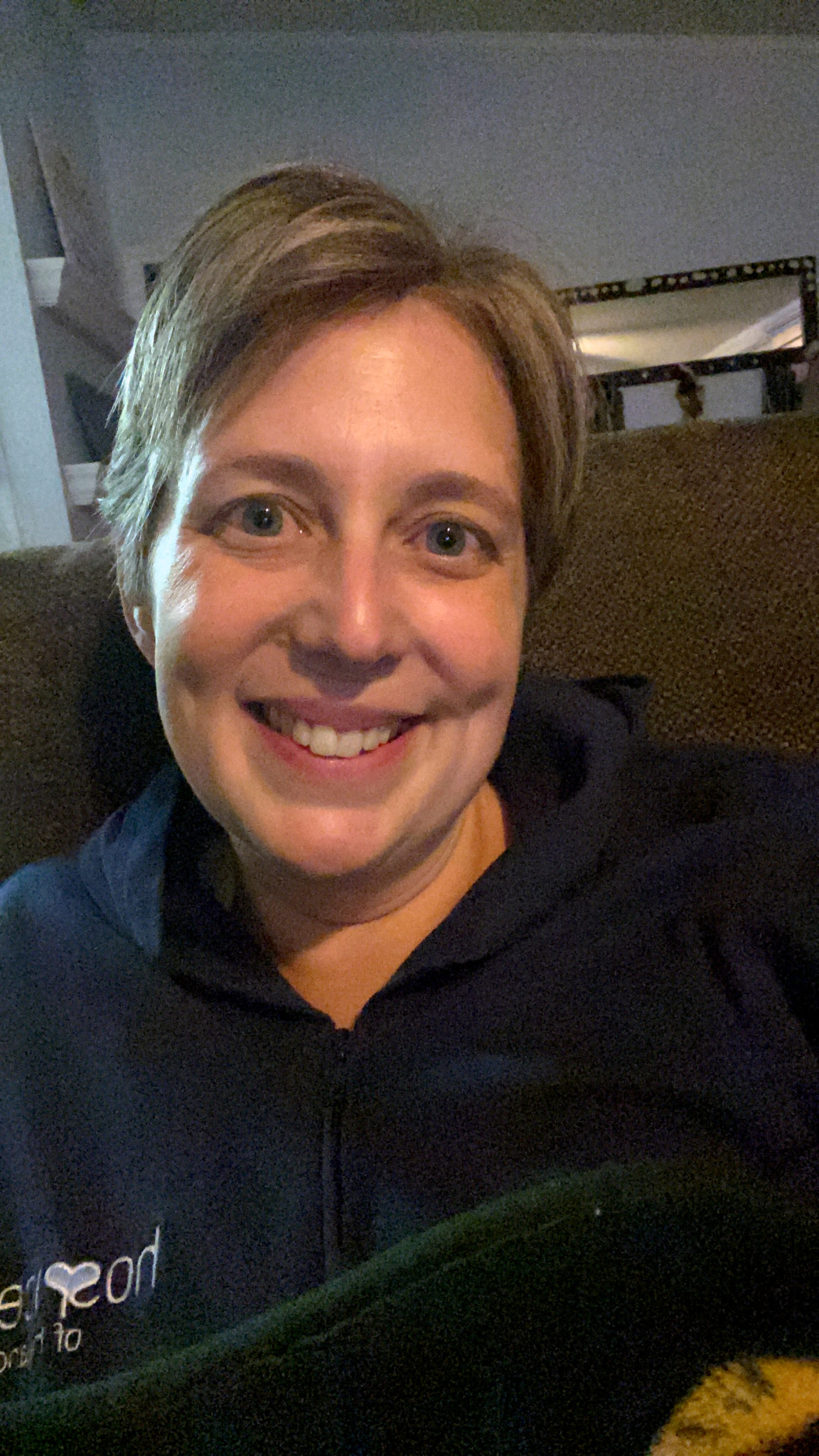
Kate Meyer
- Hospice of Holland
- Holland, Michigan
Challenges of COVID: Gloves, masks, goggles, and a gown change the ministry of presence. We had to adapt and connect at a deep level with those barriers, practicing nonverbal communication and listening skills—different cues rather than the comfort of touch.
Places of hope: I see God show up in the provision of those holy moments that we still get to have with people, walking with people in their last hours in various ways. … Despite all the things that COVID steals, I still get to work with bereaved clients and find ways to connect with their loved ones. I still get to bring communion to people (in prepackaged cups). I can bring the Word to people, even if it’s by phone.
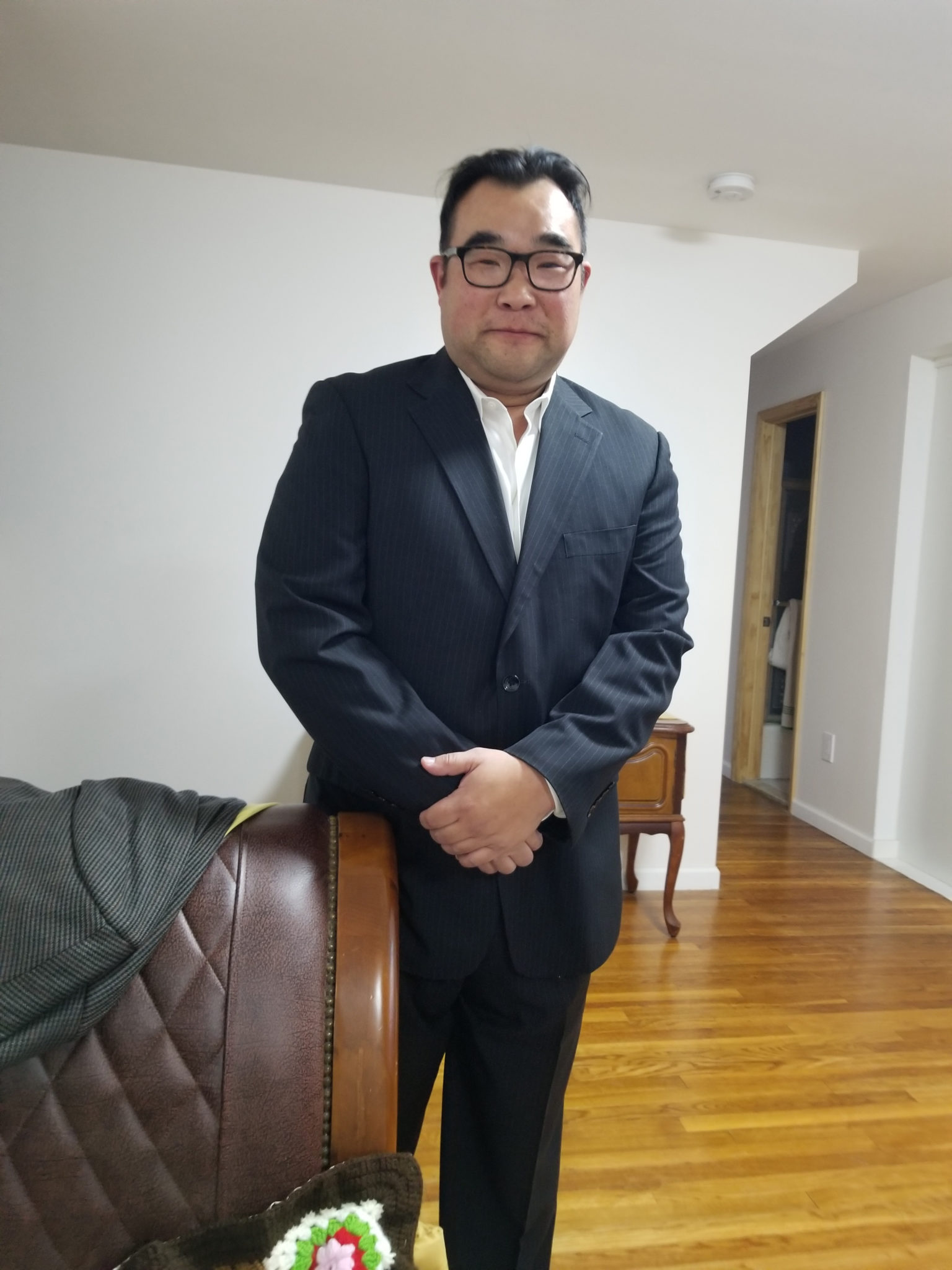
Max Han
- Hospice Care Network
- Woodbury, New York
His “why”: “Do unto the least of these as you would do for me.” My motivation was the letters we received from family members. They thanked us for being peace and comfort during their family member’s dying days. A family member gave me a call [after I performed a funeral] and said thank you for being there. Those are the rewards—knowing that my coworkers and I worked together to make a sense of peace.
Advice for caring: Be there for one another. You never know what might happen. And don’t make assumptions that you know what people are going through. Walk the journey in each of the situations, one step at a time.
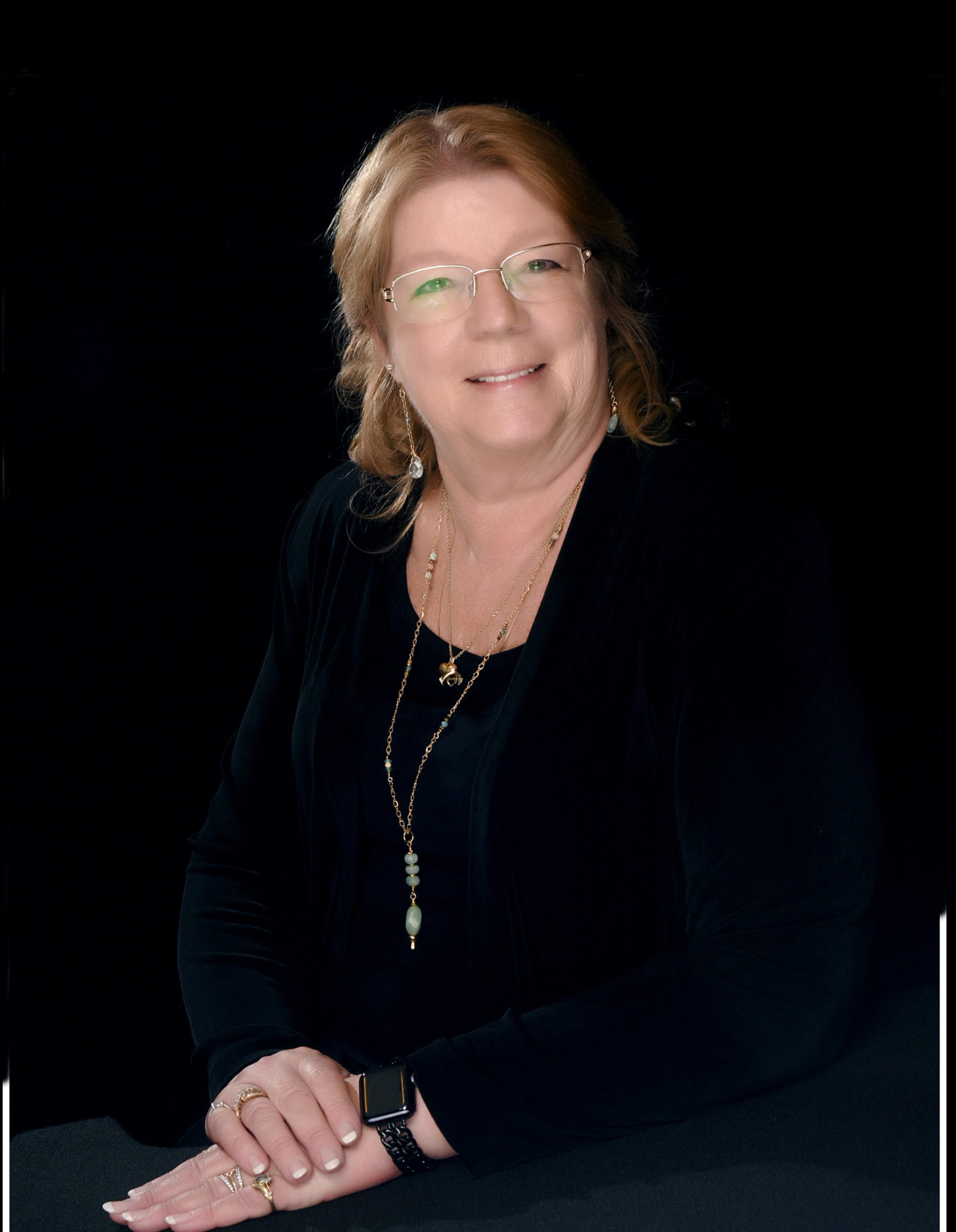
Darcy Lovgren Pavich
- Veterans Village of San Diego
- San Diego, California
Day-to-day work: My primary role is as a grief counselor, dealing with all aspects of grief and loss. … During COVID, there’s been more demand for me in mental health. … There is a lot of tragedy, but there’s nothing more beautiful than someone finding their way. We get to see miracles happen every day … suddenly a life has turned around and there’s freedom—that’s enough to keep you going.
Hopefulness: What gives me hope is that there are still people who are willing to do for others and do just enough to make other people’s life better. We’re in turmoil in a lot of ways, but I have a lot of hope. If people are willing to pick up the pieces, something beautiful can happen.
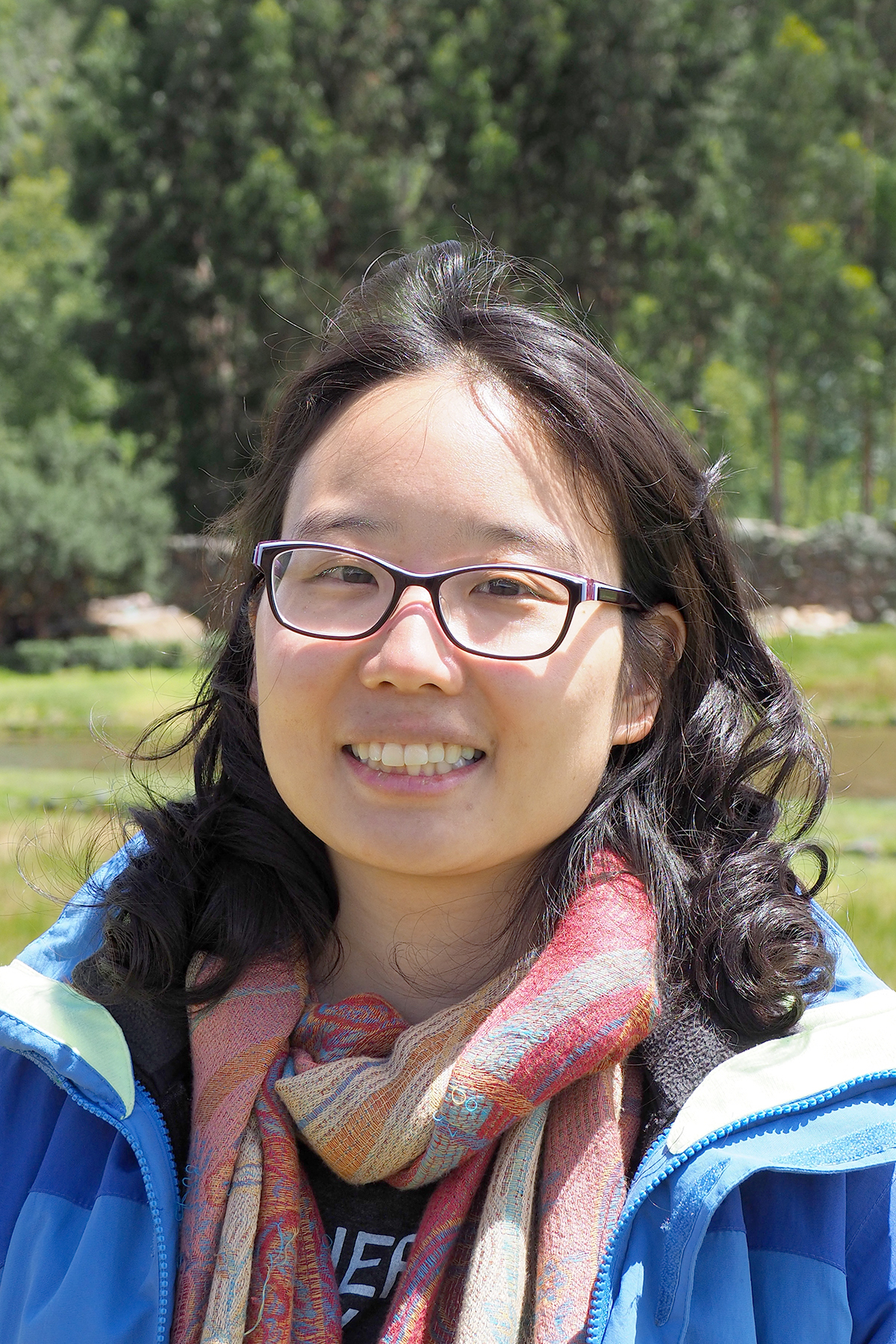
Shirley Lin
- Huntington Hospital
- Pasadena, California
The COVID scene: The beginning was so challenging. People were sad and scared. PPE was running low, and consults were by phone. We stopped all non-essential personnel from coming in to the hospital. It was pretty eerie walking through the hospital. … We transformed waiting rooms into meditation spaces—plug-in water fountains, aromatherapy stations, music—things to try to boost morale.
Caring for yourself: Our palliative care team has seen that progression of people totally burning out, especially the nursing staff. People become rigid and angry and are in bad moods. It’s hard to notice—I was probably depressed, but it wasn’t obvious to me. Being aware of where I am emotionally can get me to help other people. It’s important to kind of slow down to where you can find that joy and renewal.
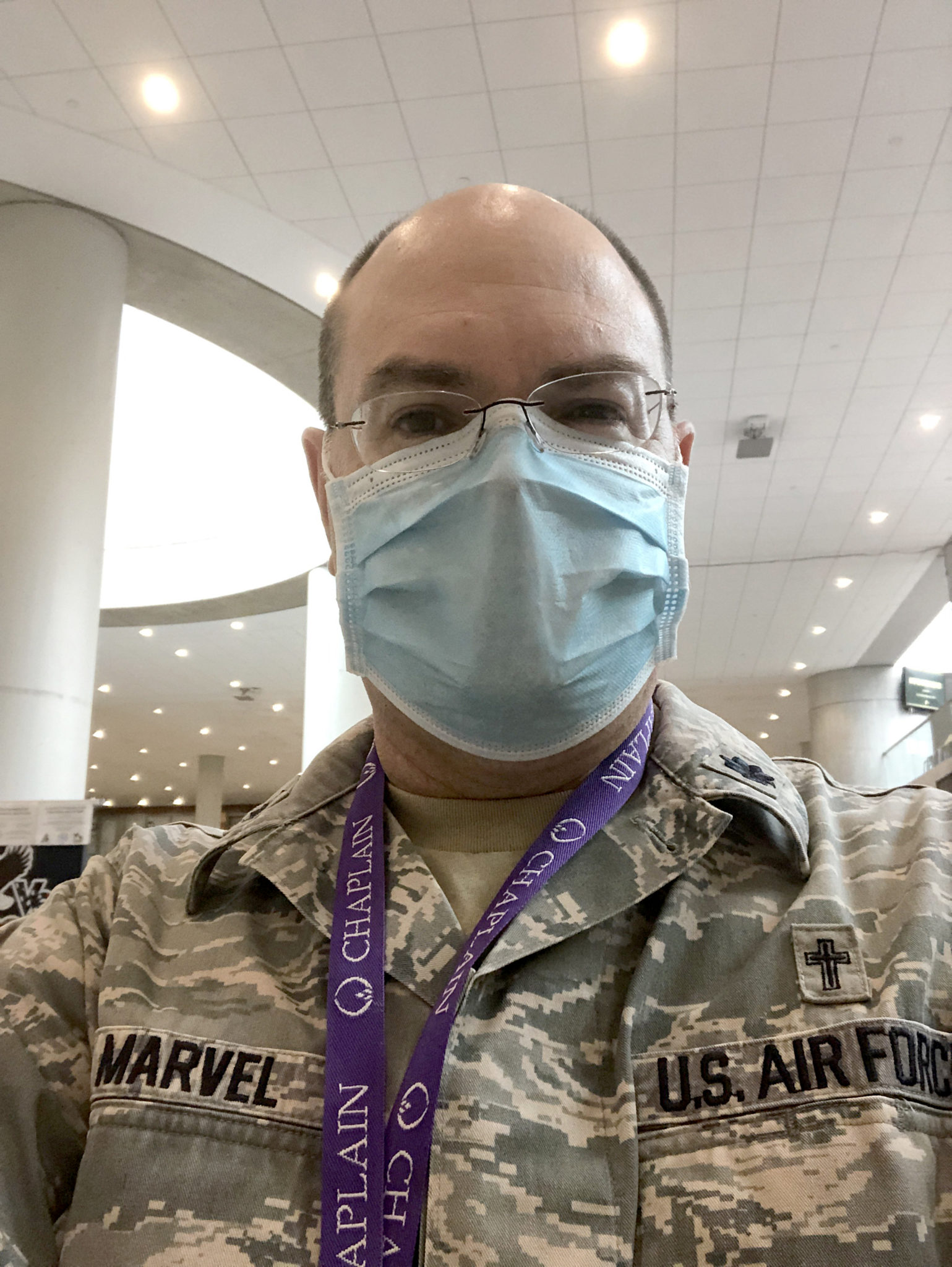
Jake Marvel
- 109th Airlift Wing, Air National Guard; Albany Medical Center
- Scotia, New York
Day-to-day work: I spend my day with people who don’t agree with my theology, and I love it. Jesus spent his time with people who were different, to honor and respect who they were, not to make them like him. … If I am only around people who look like me and believe like me, I’m missing out. If we value being in relationship first and make that more important, that’s more Christ-like.
God’s presence: Whatever I may fear or whatever anxieties the person I’m speaking with has, I don’t bring God’s presence; it’s already there. I get to be surprised by what God is doing.
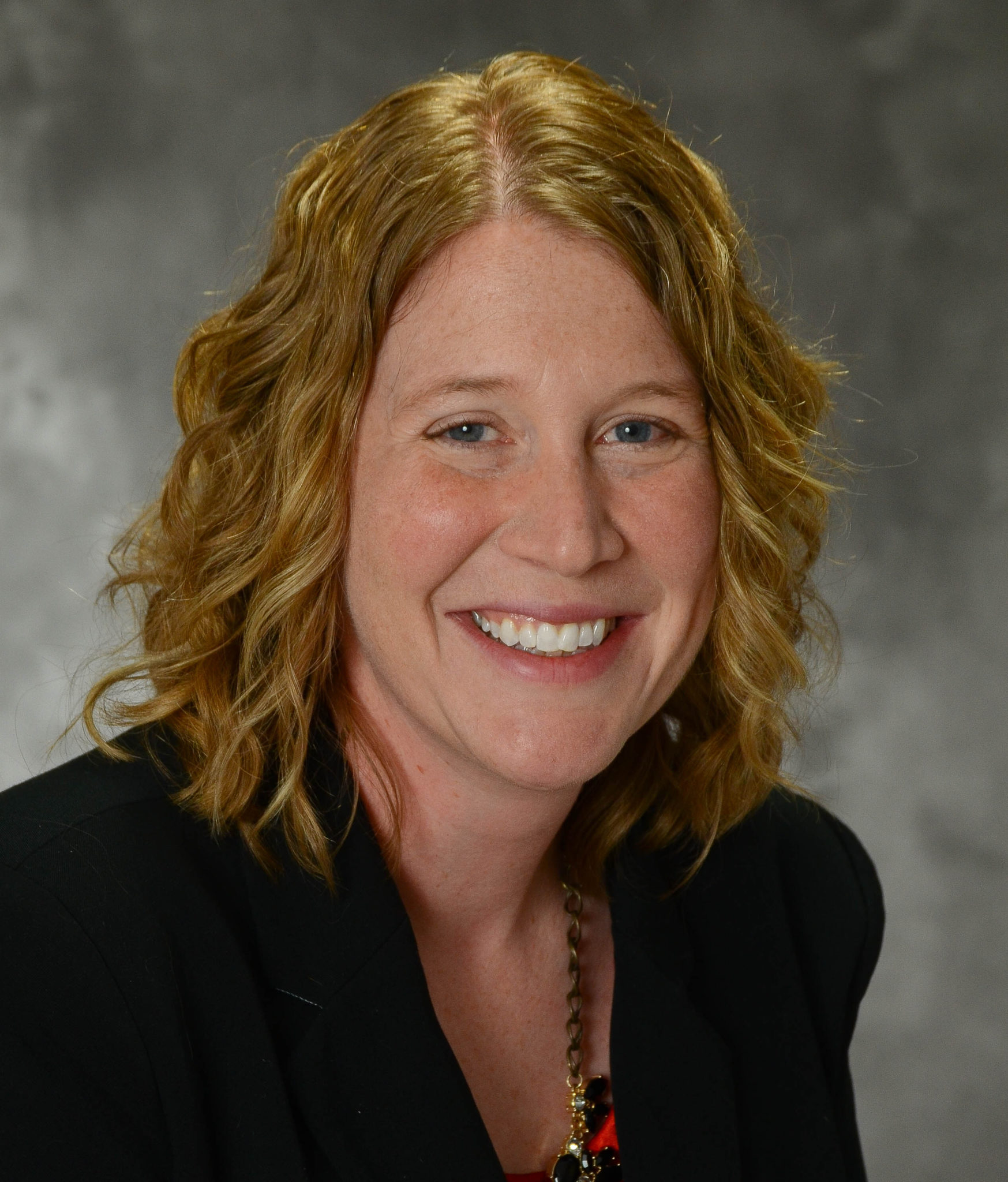
Lindsay Bona
- Advocate Aurora Health
- Wisconsin
Care during COVID: My work supporting team members (chaplains, hospital executives, staff) has increased 200 percent since COVID hit. We can’t do fancy and awesome anymore (like tea carts or larger in-person gatherings), but we can do something to lift spirits (like a blessing, a tea bag, and chocolates). When you bring those things, you give people the opportunity to talk about spiritual and emotional struggles.
Hope sightings: The glimmer of hope in it all was the community support last spring. Two times, I remember coming outside and there was a card on my car that said, ‘We appreciate you!’ And I cried. Seeing how we can pivot and bring in people virtually and safely to be with their families—there was hope in that. There was sadness, but we could still help folks using technology.
This article was also published in RCA Today, the Reformed Church in America’s denominational magazine.
Bless a chaplain
A note or phone call of gratitude is a great encouragement to a chaplain.
Find ways to bless chaplains in your community—
those who serve in local hospitals, long-term care facilities, and beyond.
Or, with a gift to the Chaplains Partnership Fund,
you can show chaplains and their families love in the form of spiritual support.
The fund also helps chaplains pursue professional development.
Becky Getz is a writer and editor for the Reformed Church in America's communication team. You can contact Becky at bgetz@rca.org.
